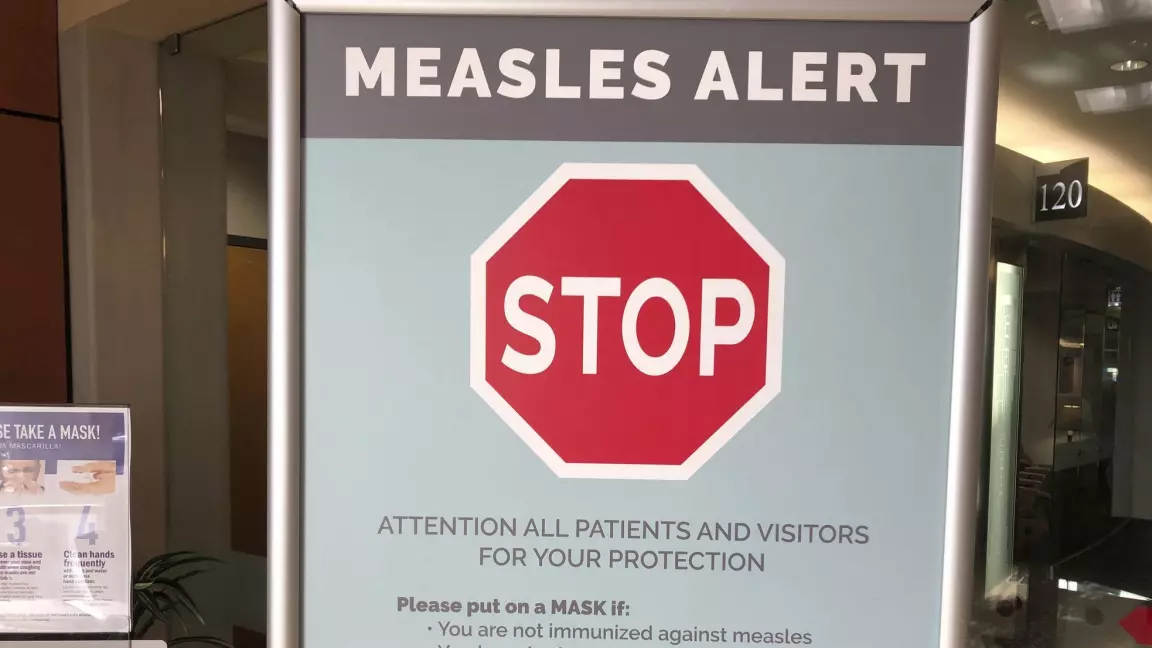The outdoor clinic at Place des Festivals, near Place des Arts, will make it possible to test between 2,000 and 2,500 people per day.
Health
Coronavirus: Drive-through clinic to open Monday in downtown Montreal – Montreal Gazette


A drive-through COVID-19 testing clinic, with no appointment needed, will open Monday in the heart of downtown Montreal, the regional health authority announced Sunday morning.
Staffed by 200 health-care workers, the outdoor clinic at the Place des Festivals, near Place des Arts, will make it possible to test far more people, the Centre intégré universitaire de santé et de services sociaux (CIUSSS) du Centre-Sud-de-l’Île-de-Montréal announced at an outdoor news conference.
Tents will be set up for the outdoor clinic with the entrance at the corner of St-Urban St. and de Maisonneuve Blvd. Hours will be 8 a.m. to 8 p.m.
The new test centre will be able to test between 2,000 and 2,500 people a day, compared with the capacity of between 600 and 800 at the existing by-appointment test centre at the former Hôtel-Dieu hospital, said Marie-france Coutu, a communications consultant with the health authority.
Related
The Hôtel Dieu clinic will be closed to the public and be used to test health-care workers under the Montreal CIUSSS.
“We want to increase the number of screenings we do,” said Caroline Dusablon, regional coordinator of emergency health measures.
Dusablon added that other walk-in clinics will be opened in other areas as and when they are needed in the coming days and weeks.
In order to get tested, people will be required to have one or more of the following risk factors:
- having returned from a trip abroad in the last 14 days
- a fever, cough or respiratory problems
- contact with a person infected with COVID-19
People who come for testing are asked to bring their Medicare card, dress warmly and to come by car. Masks will be provided and people will have the opportunity to wash their hands as soon as they arrive.
“There will be 14 triage stations, 27 registration desks, with a lot that will be located in a large heated tent, 30 screening stations in a large heated tent and about 300 people will on site during the day of opening hours from 8 a.m. to 8 p.m.,” Coutu said.
People who don’t have a car are advised to take a taxi or ask someone to drive them. People who think they are at risk of COVID-19 are asked not to use public transit.
Note to readers: We know the speed and volume of coronavirus-related news is overwhelming and a little frightening. To help with that, we will dedicate a Montreal Gazette reporter each day to devote their time to synthesizing the most important coronavirus-related news, especially as it relates to life in Montreal and Quebec. Follow their live updates from March 22 here. All our coronavirus-related news can always be found here: montrealgazette.com/tag/coronavirus.
Sign up for our new email newsletter dedicated to local coronavirus coverage here: https://montrealgazette.com/coronavirusnews
Health
Quebec successfully pushes back against rise in measles cases – CBC.ca


Quebec appears to be winning its battle against the rising tide of measles after 45 cases were confirmed province-wide this year.
“We’ve had no locally transmitted measles cases since March 25, so that’s good news,” said Dr. Paul Le Guerrier, responsible for immunization for Montreal Public Health.
There are 17 patients with measles in Quebec currently, and the most recent case is somebody who was infected while abroad, he said.
But it was no small task to get to this point.
Le Guerrier said once local transmission was detected, news was spread fast among health centres to ensure proper protocols were followed — such as not letting potentially infected people sit in waiting rooms for hours on end.
Then about 90 staffers were put to work, tracking down those who were in contact with positive cases and are not properly vaccinated. They were given post-exposure prophylaxis, which prevents disease, said Le Guerrier.
From there, a vaccination campaign was launched, especially in daycares, schools and neighbourhoods with low inoculation rates. There was an effort to convince parents to get their children vaccinated.
Vaccination in schools boosted
Some schools, mostly in Montreal, had vaccination rates as low as 30 or 40 per cent.
“Vaccination was well accepted and parents responded well,” said Le Guerrier. “Some schools went from very low to as high as 85 to 90 per cent vaccination coverage.”
But it’s not only children who aren’t properly vaccinated. Le Guerrier said people need two doses after age one to be fully inoculated, and he encouraged people to check their status.
There are all kinds of reasons why people aren’t vaccinated, but it’s only about five per cent who are against immunization, he said. So far, some 10,000 people have been vaccinated against measles province-wide during this campaign, Le Guerrier said.
The next step is to continue pushing for further vaccination, but he said, small outbreaks are likely in the future as measles is spreading abroad and travellers are likely to bring it back with them.
Need to improve vaccination rate, expert says
Dr. Donald Vinh, an infectious diseases specialist from the McGill University Health Centre, said it’s not time to rest on our laurels, but this is a good indication that public health is able to take action quickly and that people are willing to listen to health recommendations.
“We are not seeing new cases or at least the new cases are not exceeding the number of cases that we can handle,” said Vinh.
“So these are all reassuring signs, but I don’t think it’s a sign that we need to become complacent.”
Vinh said there are also signs that the public is lagging in vaccine coverage and it’s important to respond to this with improved education and access. Otherwise, microbes capitalize on our weaknesses, he said.
Getting vaccination coverage up to an adequate level is necessary, Vinh said, or more small outbreaks like this will continue to happen.
“And it’s very possible that we may not be able to get one under control if we don’t react quickly enough,” he said.
Health
Pregnant women in the Black Country urged to get whooping cough vaccine – BBC.com


Pregnant women urged to get whooping cough vaccine
Pregnant women in the Black Country are being urged to get vaccinated against whooping cough after a rise in cases.
The bacterial infection of the lungs spreads very easily and can cause serious problems, especially in babies and young children.
The Black Country Integrated Care Board (ICB) is advising pregnant women between 16 and 32 weeks to contact their GP to get the vaccine so their baby has protection from birth.
The UK Health Security Agency warned earlier this year of a steady decline in uptake of the vaccine in pregnant women and children.
Symptoms of the infection, also known as “100-day cough”, are similar to a cold, with a runny nose and sore throat.
Sally Roberts, chief nursing officer for the ICB, which covers Wolverhampton, Dudley, Walsall and Sandwell, said anyone could catch it, but it was more serious for young children and babies.
“Getting vaccinated while you’re pregnant is highly effective in protecting your baby from developing whooping cough in the first few weeks of their life – ideally from 16 weeks up to 32 weeks of pregnancy,” she said.
“If for any reason you miss having the vaccine, you can still have it up until you go into labour.”
Follow BBC West Midlands on Facebook, X and Instagram. Send your story ideas to: newsonline.westmidlands@bbc.co.uk
Health
Measles cases stabilize in Montreal – CityNews Montreal


The number of measles cases has stabilized, according to the Montreal Public Health.
Since March 25, there have been no contaminations reported within the community.
“Our teams have identified all contact cases of measles,” said media relations advisor Geneviève Paradis. “It’s a laborious task: each measles case produces hundreds of contacts.”
All community transmission cases since February 2024 have been caused by returning travelers who were either unvaccinated or partially vaccinated.
Currently, there are 18 measles cases in Montreal – with 46 total in Quebec. This according to the April 18 figures from the provincial government.
“With the summer vacations approaching, if you’re travelling, it is essential to check if you are protected against measles,” explained Paradis.
According to Montreal Public Health, a person needs to have received two doses after the age of 12 months to be immunized against the virus.
They’ve launched a vaccination campaign throughout the region, and currently, 11,341 people have been vaccinated against measles in Montreal between March 19 and April 15.
Vaccination is also being provided in schools and at local service points.
“The vaccination operation is under the responsibility of the five CIUSSS of the territory,” concluded Paradis.
-



 Tech23 hours ago
Tech23 hours agoCytiva Showcases Single-Use Mixing System at INTERPHEX 2024 – BioPharm International
-



 Health19 hours ago
Health19 hours agoSupervised consumption sites urgently needed, says study – Sudbury.com
-



 Science5 hours ago
Science5 hours agoJeremy Hansen – The Canadian Encyclopedia
-
News19 hours ago
Canada's 2024 budget announces 'halal mortgages'. Here's what to know – National Post
-
News18 hours ago
2024 federal budget's key takeaways: Housing and carbon rebates, students and sin taxes – CBC News
-



 Investment5 hours ago
Investment5 hours agoUK Mulls New Curbs on Outbound Investment Over Security Risks – BNN Bloomberg
-



 Tech21 hours ago
Tech21 hours agoNew EV features for Google Maps have arrived. Here’s how to use them. – The Washington Post
-



 Science18 hours ago
Science18 hours agoGiant, 82-foot lizard fish discovered on UK beach could be largest marine reptile ever found – Livescience.com





